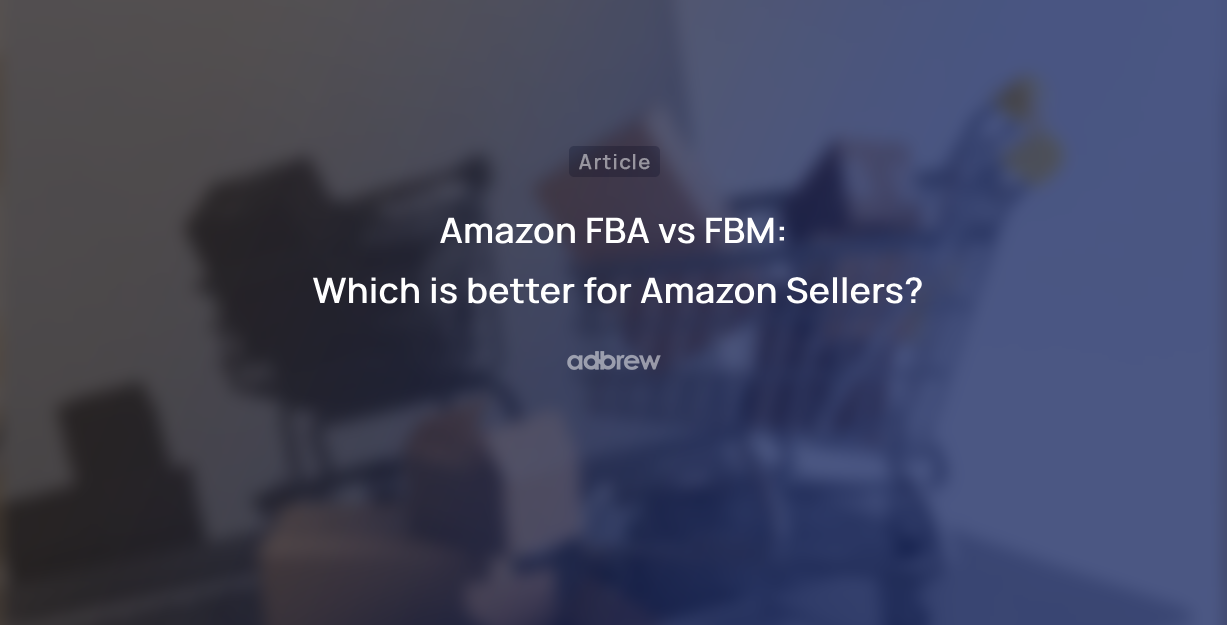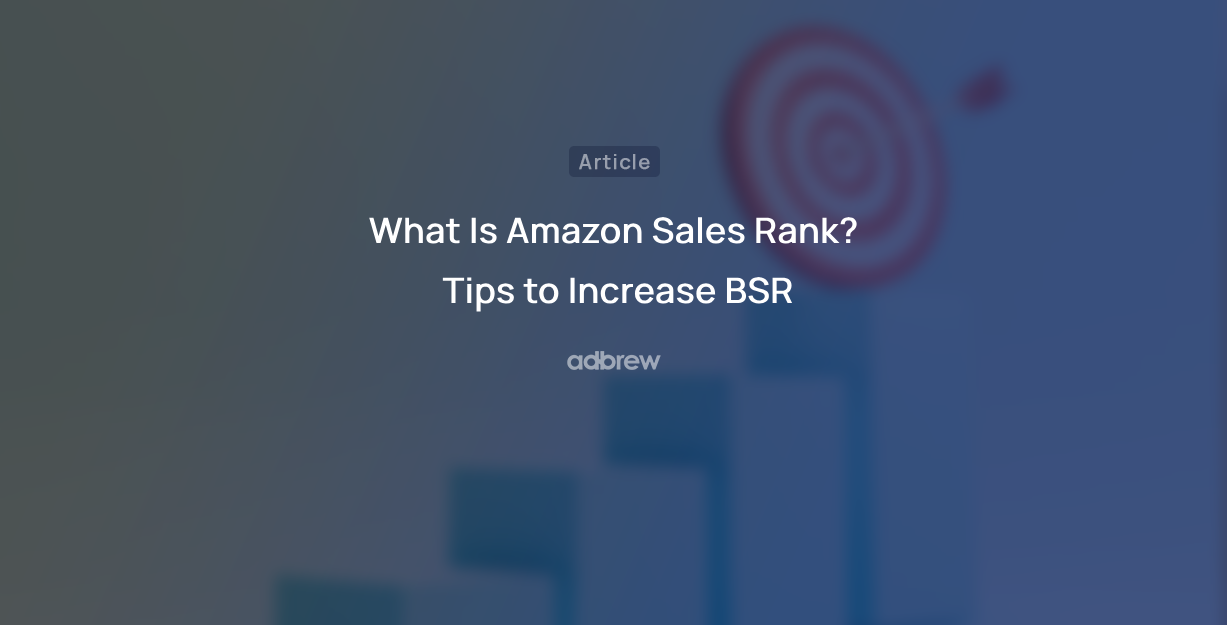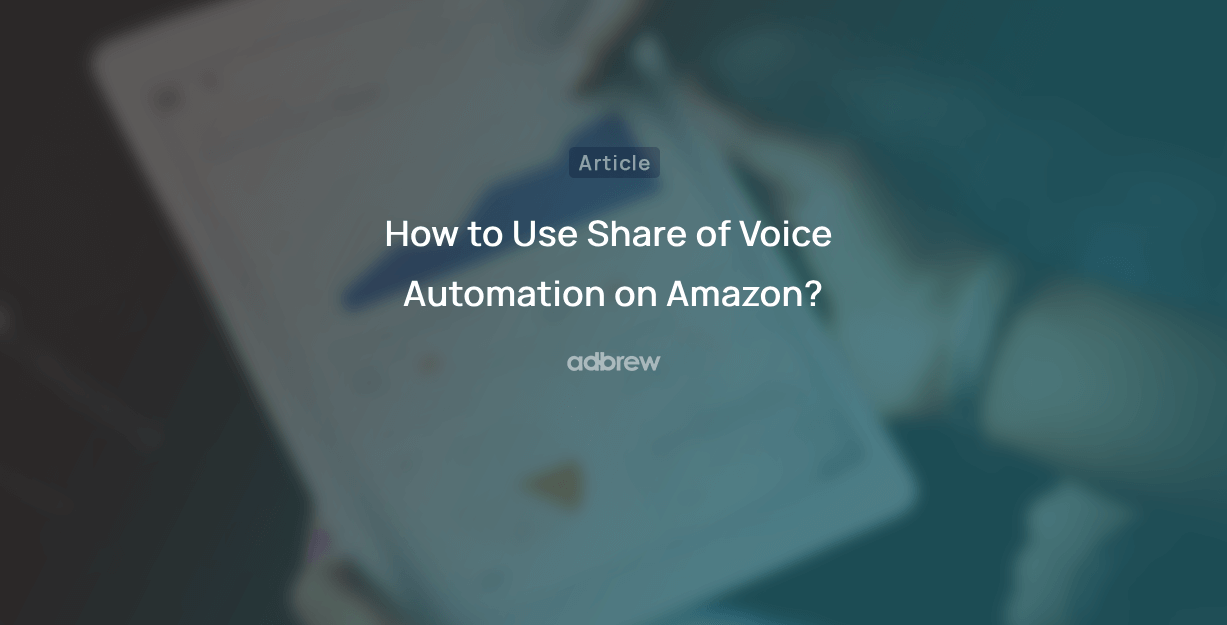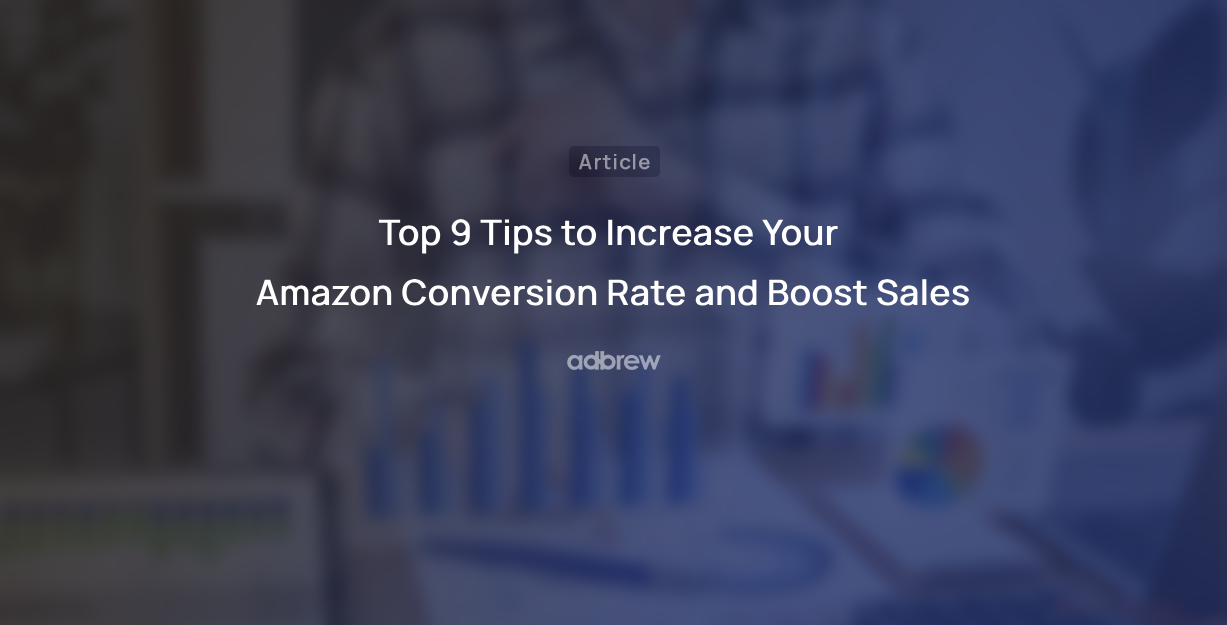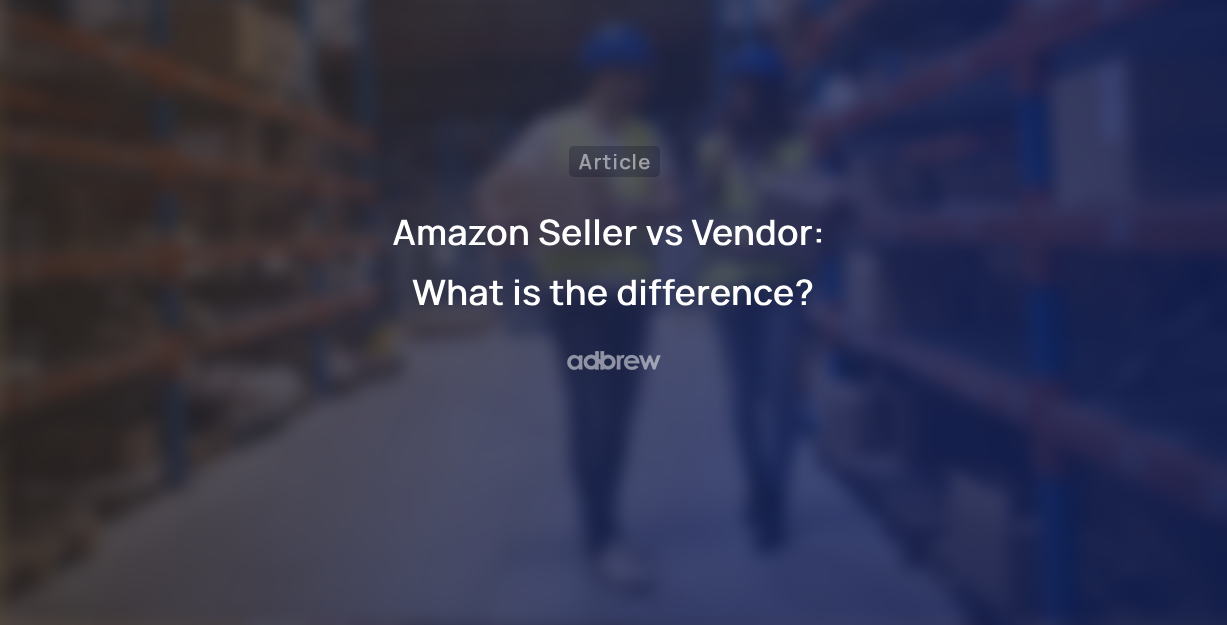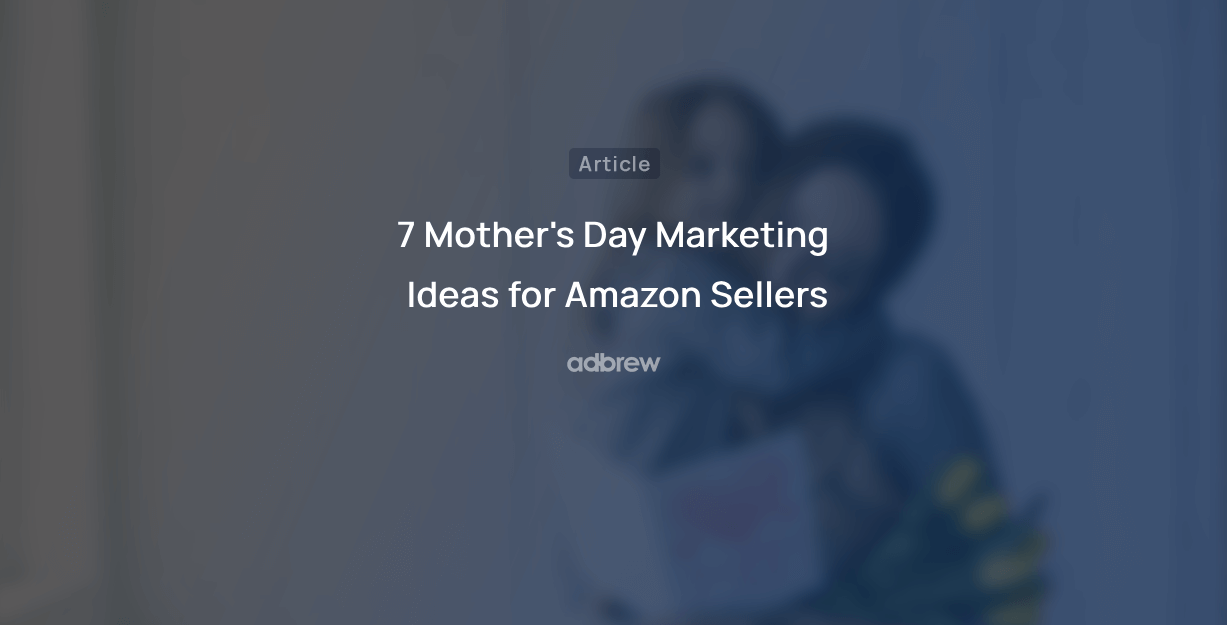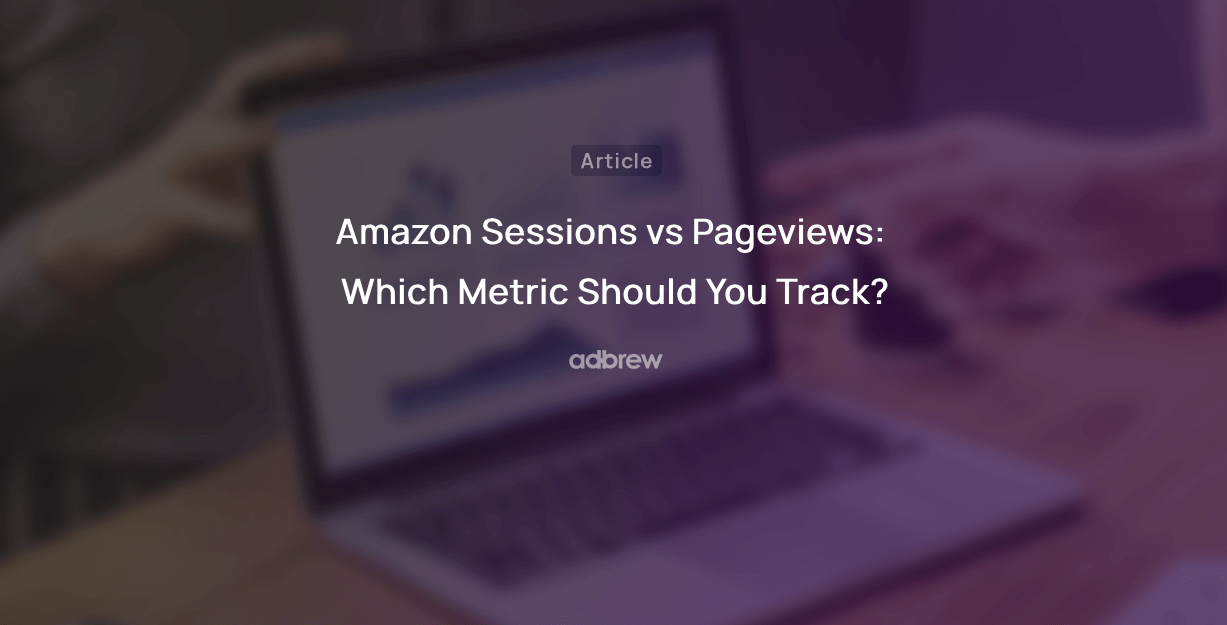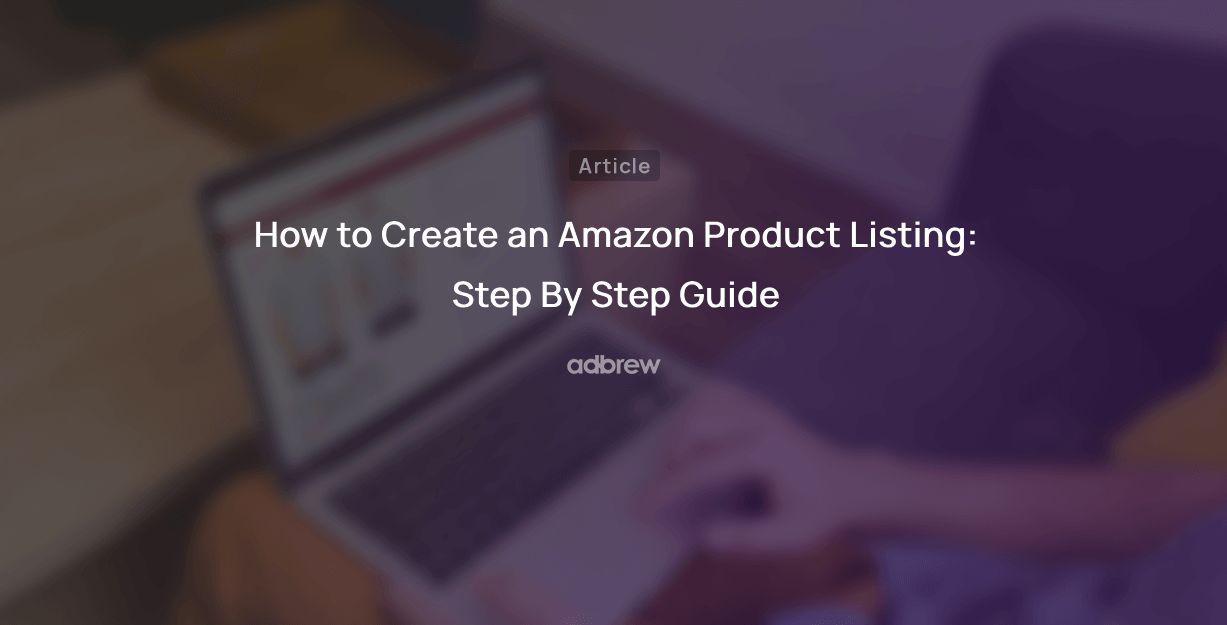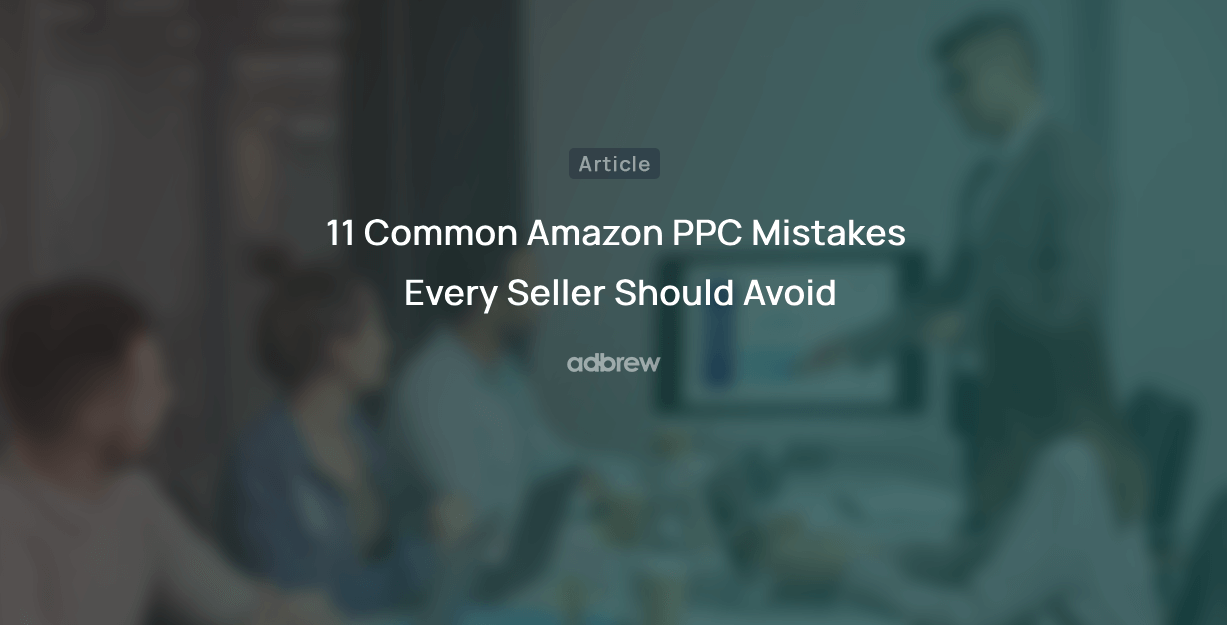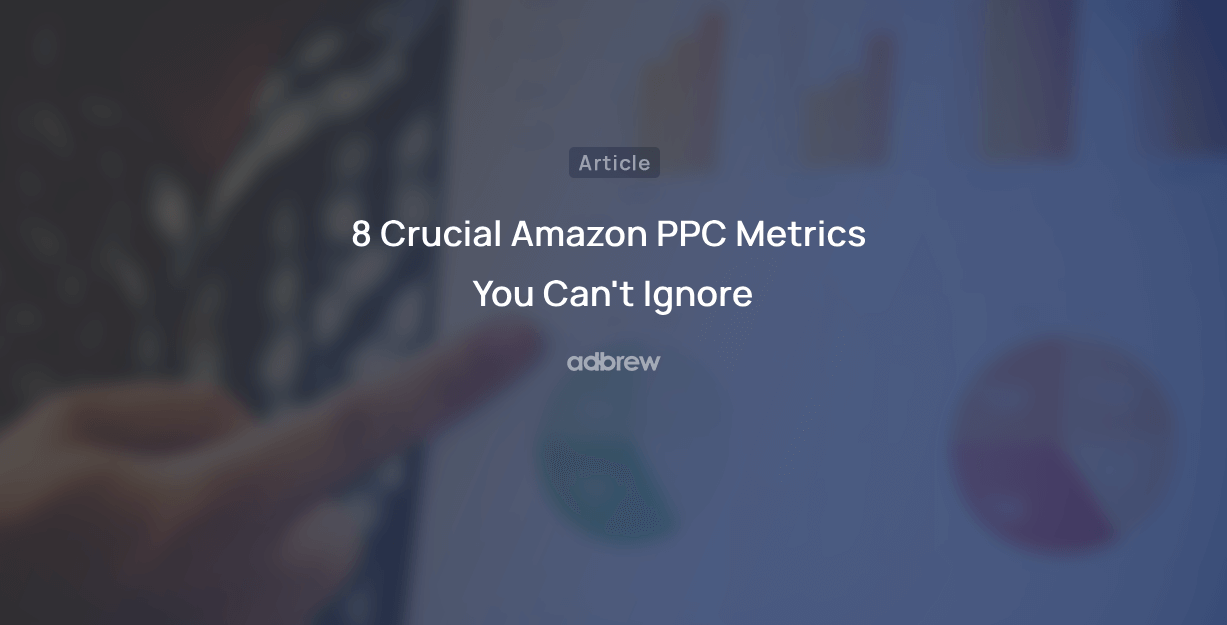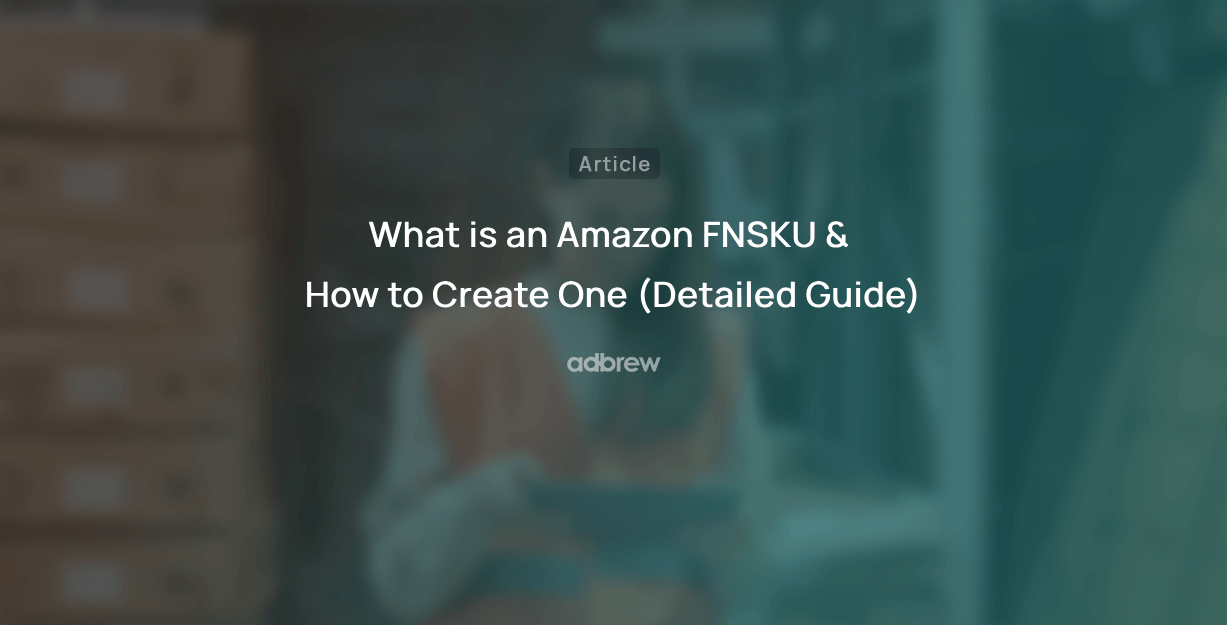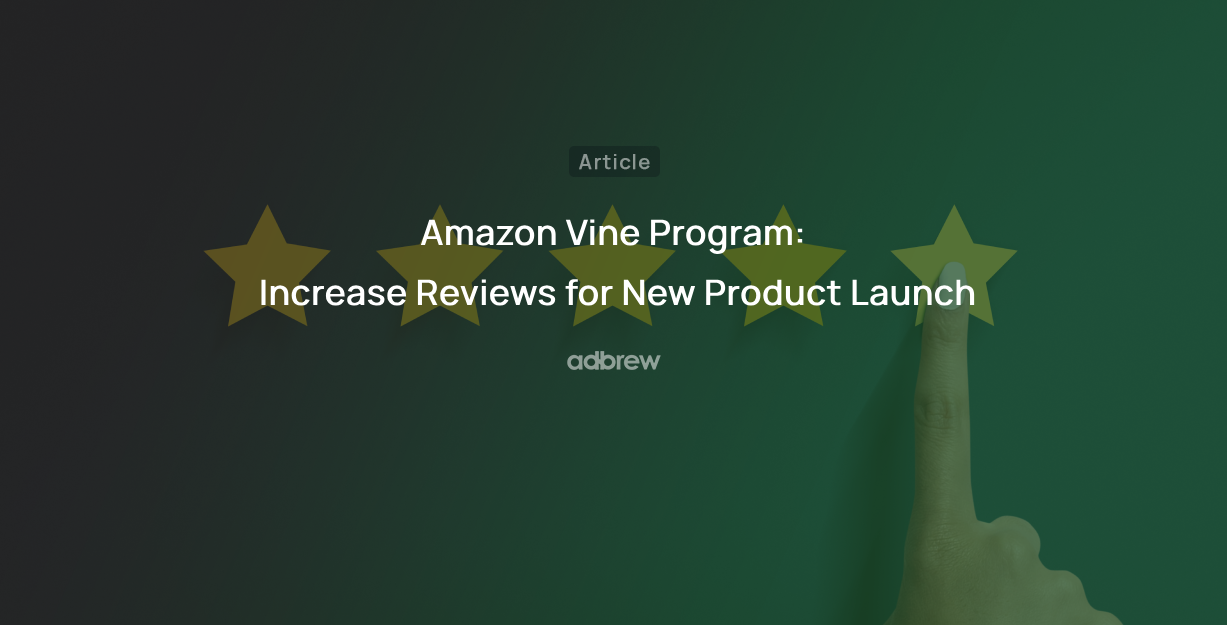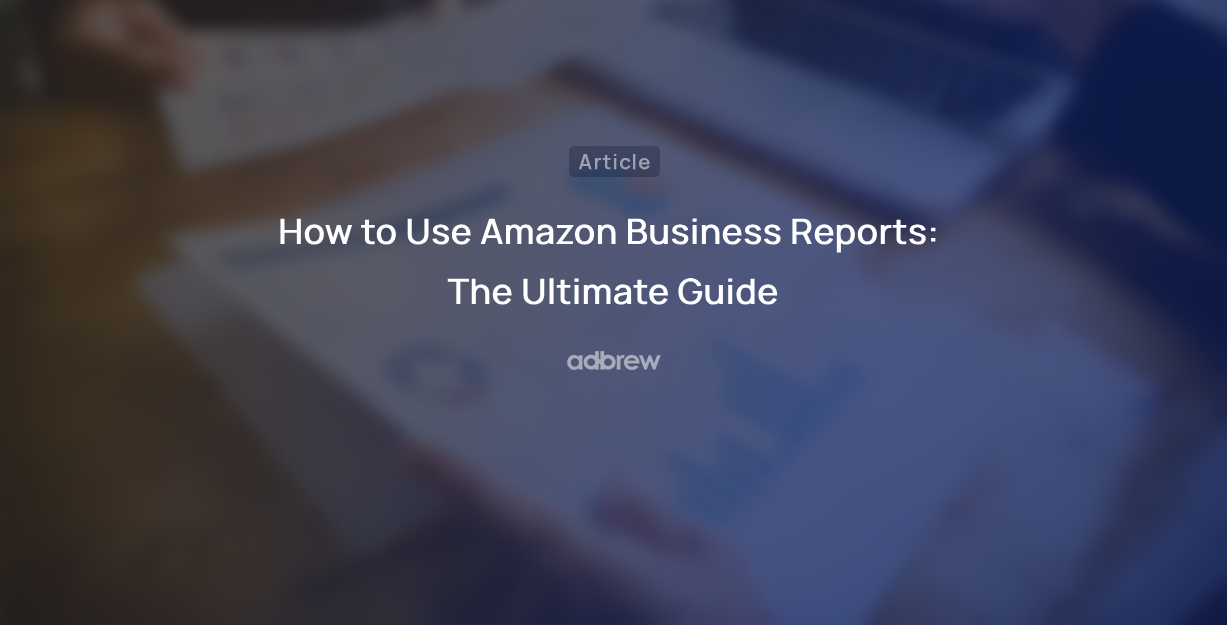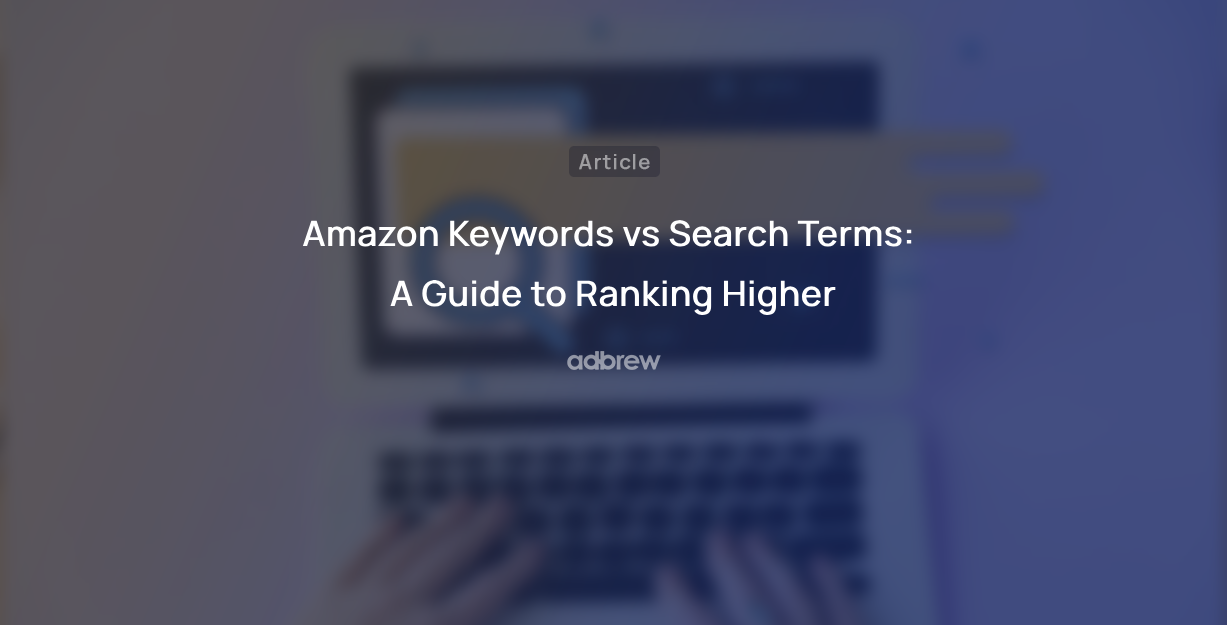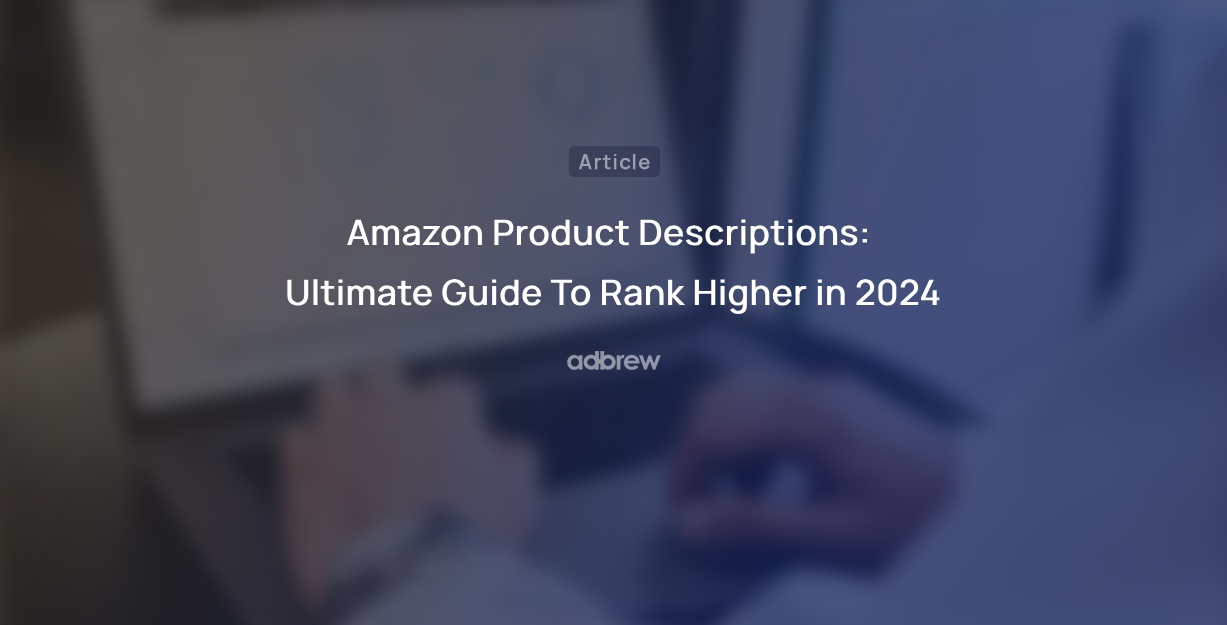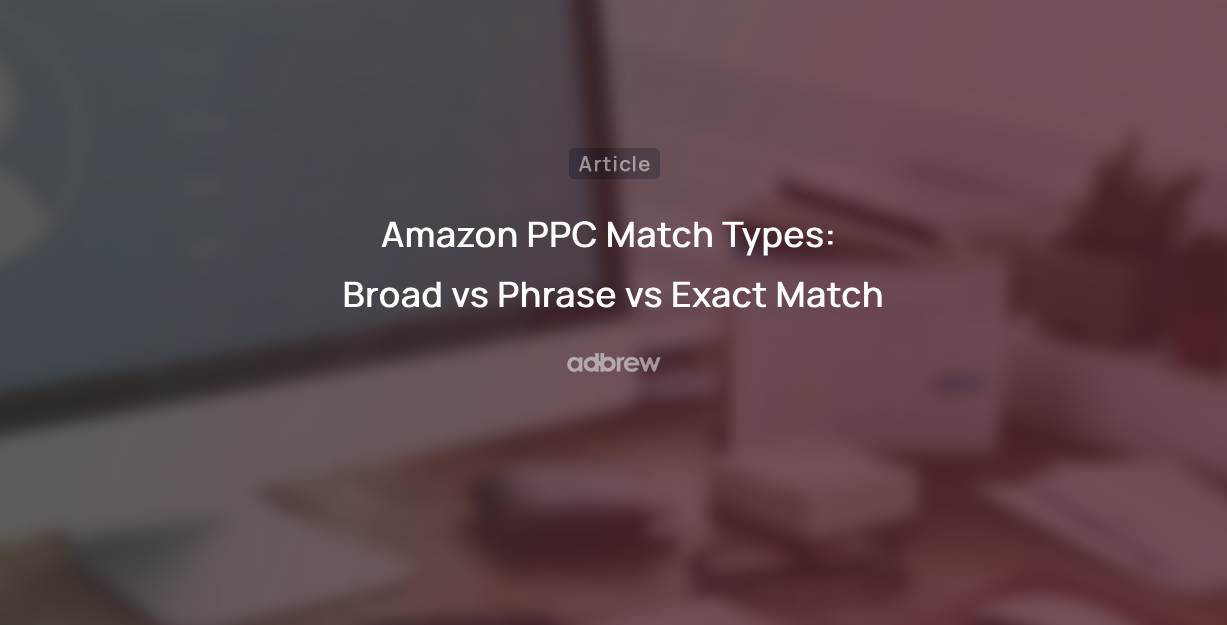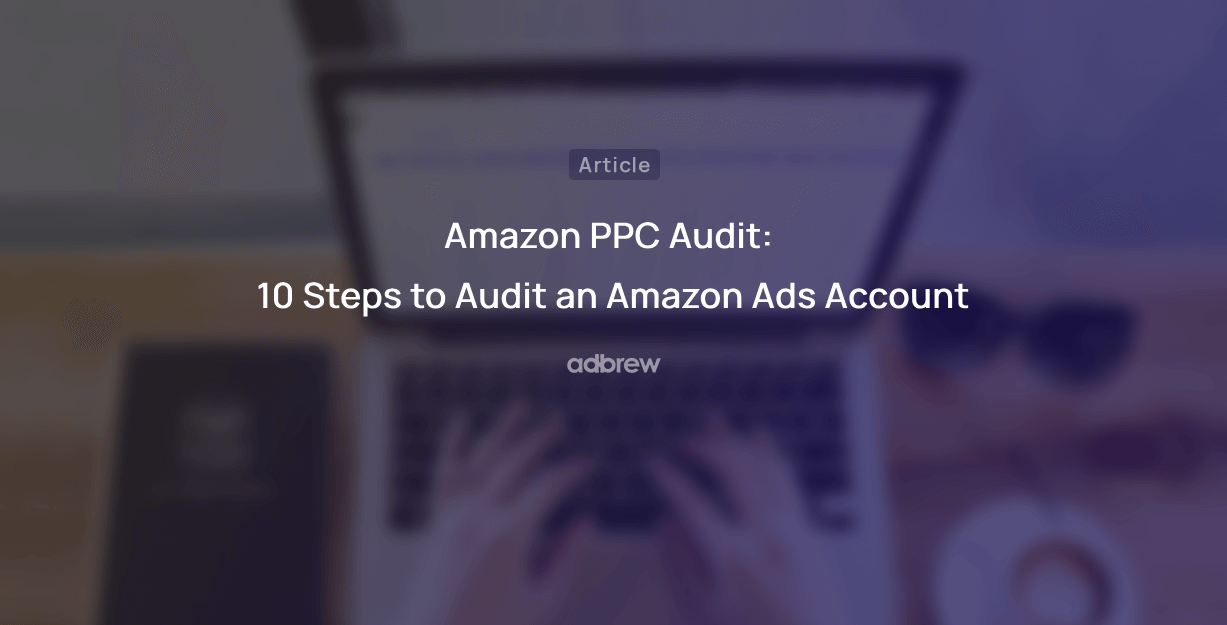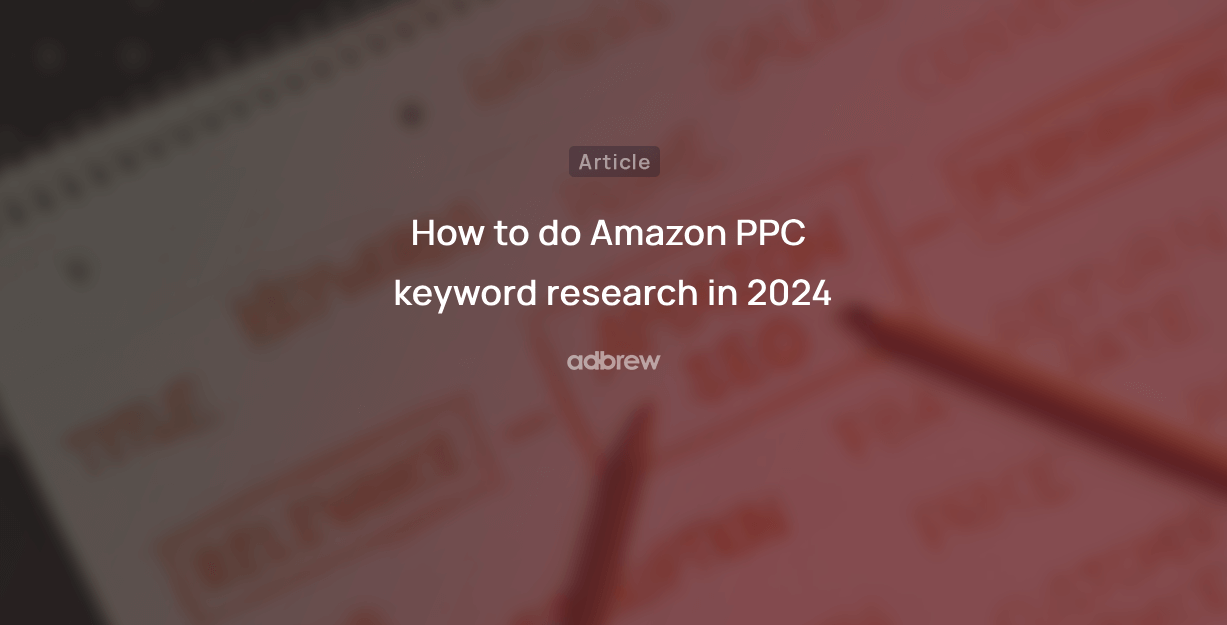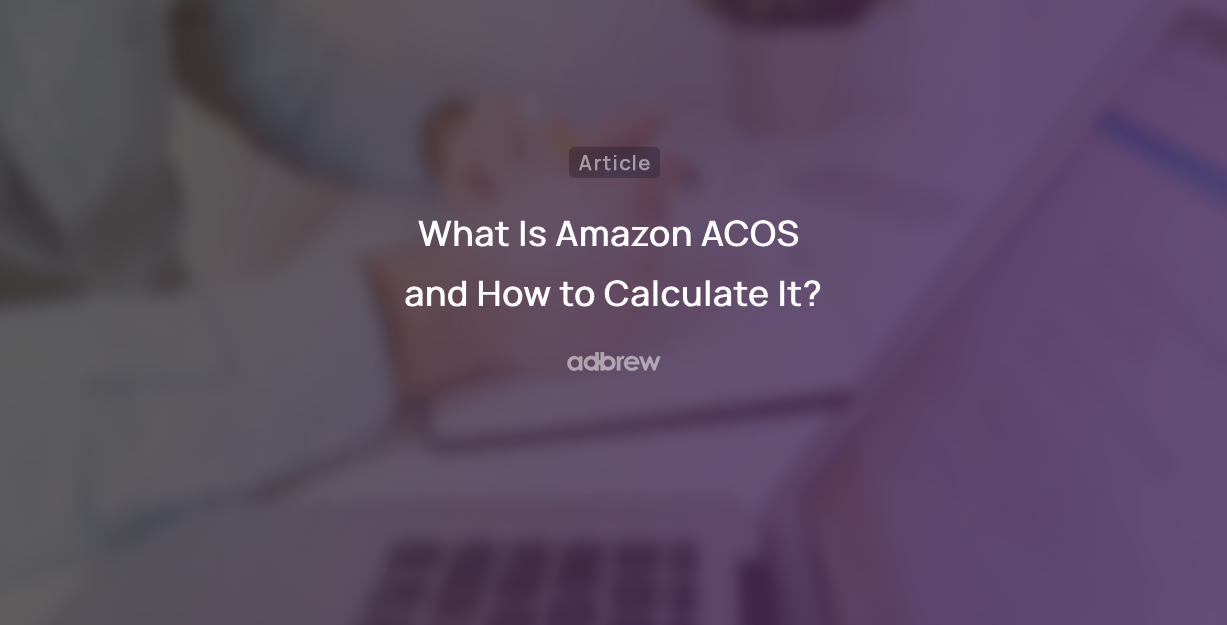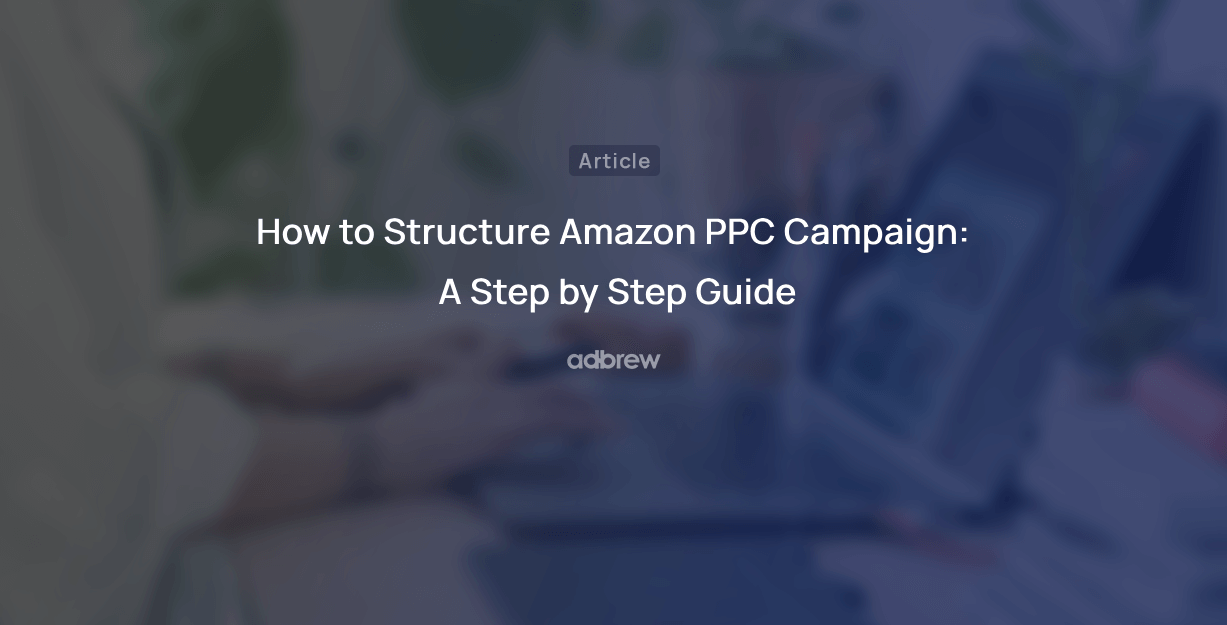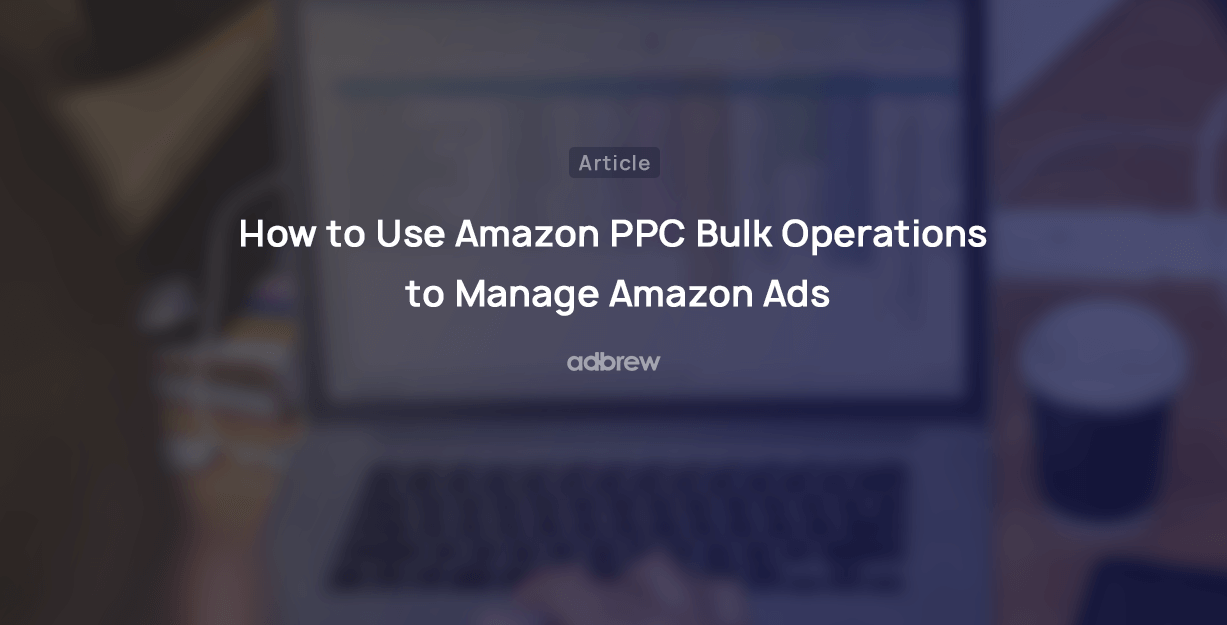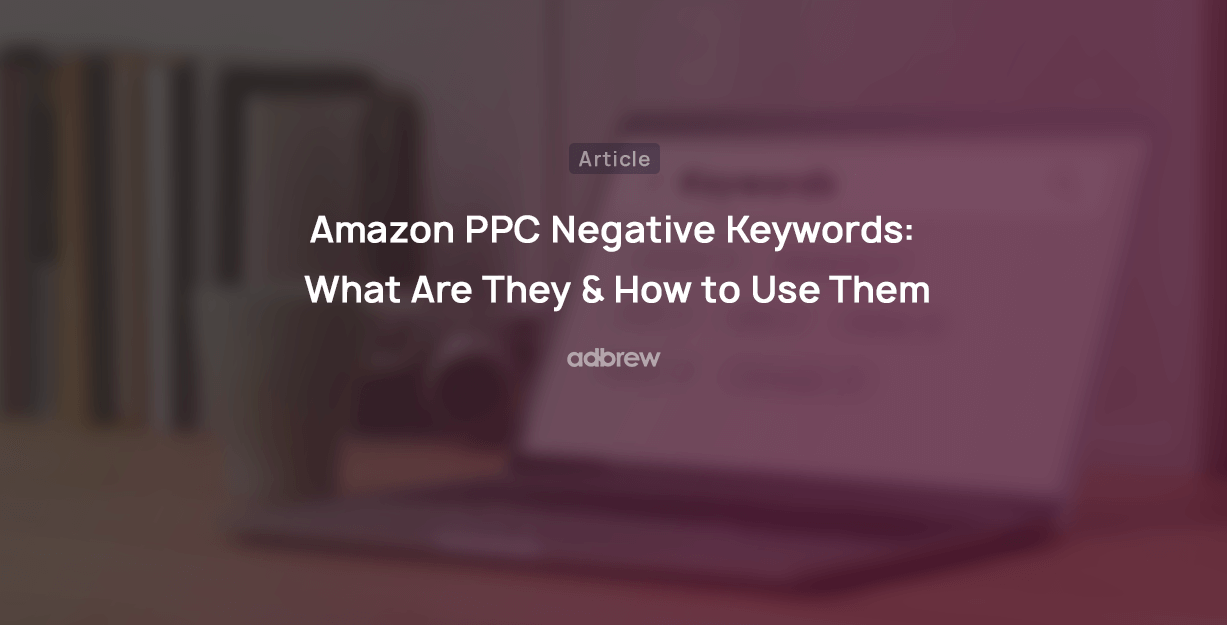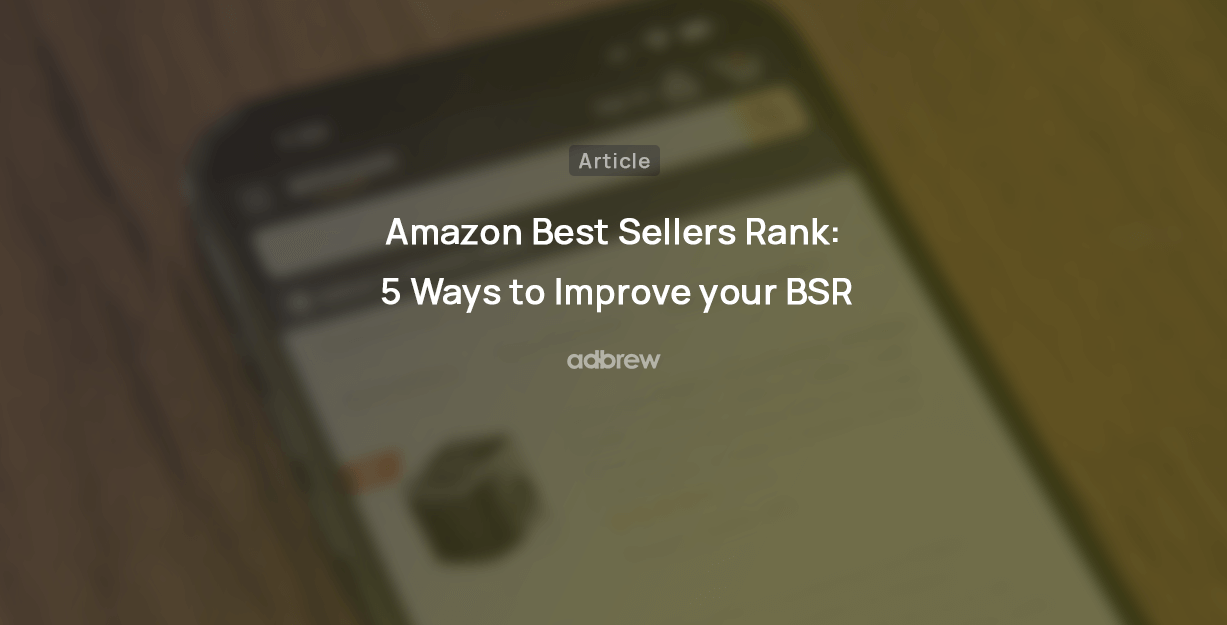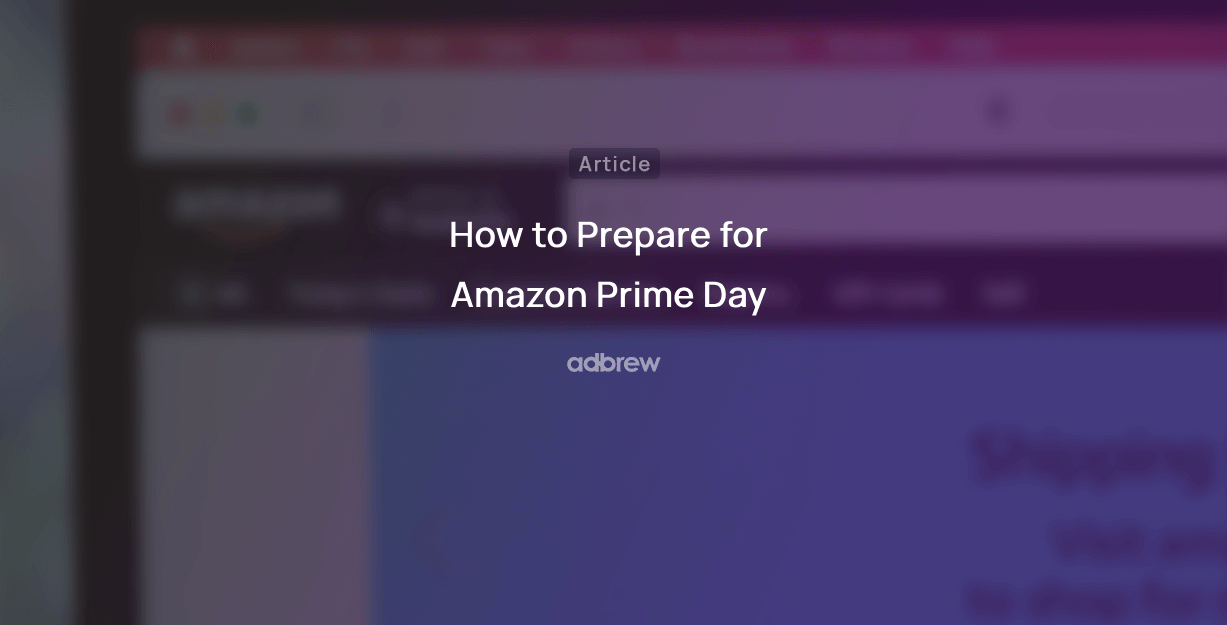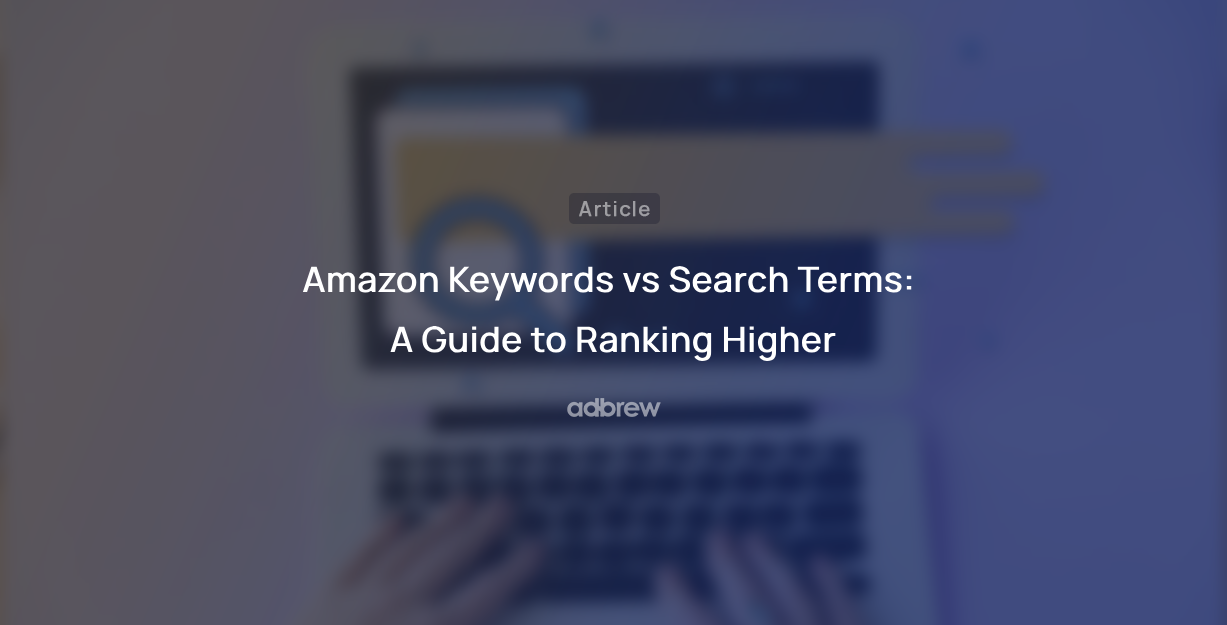
In the ever-evolving landscape of e-commerce, distinguishing between keywords and search terms is vital for optimizing product visibility and driving sales on platforms like Amazon. Despite the frequent interchangeability of these terms, they play distinct roles in your advertising strategy.
In this blog, we will delve into the nuances of ‘Amazon Search Terms vs Keywords,’ and help you understand how they play different roles in Amazon search terms optimization, advertising stratgey, and more.
What are Search Terms?
Amazon search terms are the specific queries users enter when looking for products on the platform. These are the phrases customers type into the search bar, expressing their intent and preferences. For instance, if a user searches for “toxin-free face wash,” that entire phrase becomes a search term. Understanding these terms is crucial for advertisers, providing insight into customer behavior and helping in refining targeting strategies.
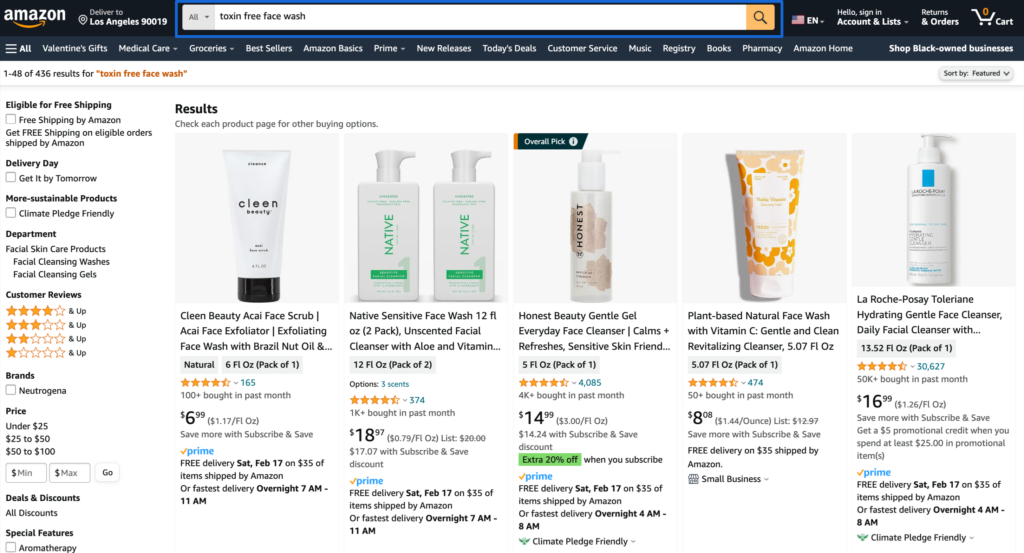
Amazon keywords are specific words or phrases that sellers strategically incorporate into their product listings and advertising campaigns. These words encapsulate the essence of the product and play a crucial role in making the product discoverable through Amazon’s search algorithm. Sellers use keywords in product titles, descriptions, and backend search fields to influence how the algorithm connects their products with relevant customer searches.
When sellers use keywords in their advertising campaigns, they gain flexibility in determining the match type of the keyword. This match type dictates how closely Amazon’s algorithm will match that keyword with the customer’s search term on the platform.

To better grasp the concept, let’s explore the three match types and how they can differ from a user’s search term:
Broad Match
In a broad match type, Amazon matches your ads with a wide range of relevant search queries related to your target keyword. This includes variations, synonyms, and even loosely related terms. It offers the broadest reach but may also result in less precise matches.
Example:
- Target Keyword: “Running Shoes”
- Potential Search Terms: Your ad might appear for search terms like “athletic footwear,” “jogging sneakers,” or “sporty running shoes.”
Phrase Match
In a phrase match type, your ad is shown when a customer’s search term includes the exact phrase you’ve specified as your target keyword. Additional words can appear before or after the phrase, allowing for some flexibility while maintaining a more targeted approach.
Example:
- Target Keyword: “Travel Backpack”
- Potential Search Terms: Your ad could be triggered for search terms such as “best travel backpack for hiking” or “compact travel backpack for laptops.”
Exact Match
The exact match type is the most restrictive. Your ad is displayed only when a customer’s search term precisely matches your target keyword. This provides the highest level of precision but might limit the overall reach.
Example:
- Target Keyword: “Wireless Earbuds”
- Potential Search Terms: Your ad will be triggered for the exact search term “wireless earbuds,” ensuring a precise match with minimal variations.
What are Backend Keywords on Amazon
Backend keywords on Amazon are hidden phrases you add to your product listings that are invisible to shoppers on the product detail page. However, they are indexed by Amazon’s search algorithm, which helps your product appear in relevant search results.
In simpler terms, they act like behind-the-scenes tags that tell search engines what your product is all about, even though customers can’t see them. This is important because it allows you to target relevant keywords that you might not be able to naturally fit into your product title, description, or features.
Significance of Search Terms in Listing Optimization
In the context of listing search engine optimization, search terms play a crucial role in enhancing visibility and performance. Here’s how search terms help in listing optimization:
1. Improved Visibility
- The inclusion of relevant search terms or keywords in product listings ensures that the product appears in search results when users look for specific items.
- Utilizing popular and industry-relevant terms increases the likelihood of the product being discovered by a broader audience.
2. Keyword Ranking
- Search algorithms often prioritize listings that closely match search terms. Including relevant keywords in your product listing can improve its ranking in search results.
- Strategic use of keywords helps the listing to appear higher in the search results, increasing the chances of potential customers clicking on it.
3. Targeting Customer Intent
- Understanding the intent behind certain search terms allows for the creation of listings that directly address customer needs. Thus, with the right keyword research, you can target high-intent shoppers on Amazon for your product.
- Incorporating long-tail keywords that reflect specific customer queries can be particularly effective in targeting niche markets.
4. Competitive Advantage
- Analyzing and incorporating high-performing search terms used by competitors can provide insights and help optimize your own product listings.
- Identifying unique or less competitive keywords can give your listings a competitive advantage and improve visibility in specific market segments.
5. Enhanced Conversion Rates
- Using search terms that align with customer expectations and preferences can lead to higher conversion rates. Customers are more likely to make a purchase when the product meets their specific needs.
Keyword Limits and Standards on Amazon
Amazon has specific guidelines and standards for keywords, particularly in the context of product listings. However, it’s important to note that these guidelines may be subject to change, and it’s advisable to check the latest information on Amazon Seller Central or contact Amazon Seller Support for the most up-to-date details. Here are some general guidelines related to search terms on Amazon:
1. Character Limits
- There are different character limits for search terms for different use cases.
- Backend Search Terms: Previously at 249 bytes, Amazon recently expanded this limit to 2500 characters across five fields, each with a 500-character cap.
- Product Title: 200 bytes (including spaces and punctuation).
- Product Description: 2000 bytes (including spaces and punctuation).
2. Relevance and Accuracy
- Keywords must be relevant to the product and accurately describe its features. Including unrelated or misleading terms is against Amazon’s guidelines.
- Avoid using competitor brand names or making false claims.
3. No Repetition
- Repetitive use of keywords within the search terms is discouraged. Amazon’s algorithm considers redundancy, and repeating keywords excessively may not provide additional benefit.
4. Prohibited Content
- Certain types of content are prohibited in search terms. This includes offensive language, information unrelated to the product, and inappropriate content.
5. Avoid Special Characters
- Amazon recommends avoiding the use of special characters or symbols that don’t serve a specific purpose in the overall use of keywords.
6. Keyword Stuffing
- Keyword stuffing, or the excessive use of keywords to manipulate search results, is against Amazon’s policies. It’s important to use keywords naturally and focus on providing valuable information to customers.
7. Guidelines for Specific Categories
- Certain categories may have additional guidelines or restrictions regarding search terms. Sellers are advised to review category-specific guidelines to ensure compliance.
Conclusion
So, there you have it! By understanding the crucial differences between Amazon search terms and keywords, you’ve taken a giant leap toward navigating the vast Amazon landscape with confidence. Remember, the key to success lies in adapting your language to both search intent and keyword optimization.
Related Blogs
Introduction Selling on Amazon can be a great way to get your products out there. But once someone buys your […]
Ever feel like you’re missing something in your Amazon PPC Search Terms report? You might be! Sure, they show what […]
Ever scrutinized an Amazon product page and noticed the cryptic “Sales Rank”? Wondering what it means and how it impacts […]
Millions of products compete for customer attention on Amazon’s search results page, making it tough for your brand to stand […]
Are you selling products on Amazon and looking to increase your sales? This blog is for you. We’ll share tips […]
Are you an Amazon seller looking to boost your brand visibility and profitability? Are you feeling stuck in the cycle […]
Ever wonder what drives your online shopping habits? Perhaps a captivating product description, or an eye-catching professional photo? As it […]
For any seller on Amazon, understanding the A9 algorithm is crucial for success. This complex algorithm dictates which products appear […]
Are you an Amazon seller looking to turn those single purchases into recurring revenue? Look no further than the Subscribe […]
Amazon has become a go-to platform for all e-commerce business owners to launch and scale their e-commerce brands online. But […]
Mother’s Day, a time to celebrate the incredible women who raised us, is a prime opportunity for Amazon sellers to […]
In the ever-competitive landscape of Amazon, ranking high in organic search results is crucial for driving sales. While you might […]
If you’ve ever found yourself scratching your head over Sessions and Pageviews on your Amazon business reports, you’re not alone. At […]
Amazon is a massive marketplace, attracting millions of customers with diverse needs, preferences, budgets, and mindsets for shopping. To effectively […]
With Amazon boasting over $575 billion in retail sales for 2023, it’s no wonder so many sellers flock to its […]
Advertising on Amazon through pay-per-click campaigns can significantly enhance product visibility and sales for sellers. However, mastering Amazon PPC, with […]
Have you heard of the terms copyright infringement and plagiarism? If so, then Amazon Brand gating won’t be unfamiliar to […]
If you are running ads on Amazon, you’ll come across a sea of data in your advertising console. But does […]
Have you heard of the terms copyright infringement and plagiarism? If so, then Amazon Brand gating won’t be unfamiliar to […]
In the fast-paced world of e-commerce, where shoppers are bombarded with choices, standing out on platforms like Amazon is paramount […]
Are you planning to start an Amazon FBA store? If so, you’ll encounter a unique term – FNSKU. This seemingly […]
Introduction As an Amazon seller, you understand the power of reviews. They’re the lifeblood of trust and conversion on the […]
Are you struggling to get Amazon reviews on your product? Well, you are not alone! Reviews are the backbone of […]
Are you tired of bland Amazon product listings failing to grab attention? In today’s competitive online marketplace, standing out is […]
As an Amazon seller, understanding how your brand performs throughout the customer journey is vital for success. However, until recently, […]
As an Amazon seller, optimizing your business and maximizing profits relies heavily on data analysis. One invaluable tool for gaining […]
Are you struggling to get noticed on Amazon’s massive platform? Do your products get lost in a sea of similar […]
For any Amazon seller getting into the world of sponsored advertising, understanding the Advertising Cost of Sale (ACoS) is crucial. […]
A well-executed product launch on Amazon can be the key to unlocking success and gaining a competitive edge. As the […]
In the ever-evolving landscape of e-commerce, distinguishing between keywords and search terms is vital for optimizing product visibility and driving […]
Ever felt like you are throwing darts in the dark when it comes to your marketing efforts outside Amazon for […]
Amazon, the e-commerce giant, has successfully concluded a robust business year with outstanding performance in quarter 4. The most recent […]
Picture this: you have a great product on Amazon, but it’s not selling well despite having attractive images and a […]
The advertising landscape is evolving, and viewers are rapidly migrating from traditional cable TV to streaming platforms. This presents a […]
Feeling lost in the Amazon discount jungle? Struggling to reach the right customers and entice them to make the purchase? […]
Are you losing your product in the deep ocean of Amazon product listings? Want your product to stand out, rank […]
For years, Amazon sellers were in the dark. They couldn’t see what keywords customers were using to find their products, […]
Selling on Amazon can be tough with so many others doing the same in your category. That’s why it’s super […]
For Amazon sellers, understanding their customers has often felt like navigating a maze without a map. The missing link? A […]
Have you ever felt like your Amazon advertising campaigns are lost in a tangled jungle of keywords? You’re not alone. […]
When did you last give your Amazon PPC account a checkup? Regular Amazon PPC audits are crucial to ensure the […]
Embarking on the path of online selling? If so, you’re likely aware that Amazon is your ultimate destination. With a […]
Ever felt like your product is lost in the vast Amazon jungle? You’re not alone. With millions of shoppers actively […]
Amazon Sellers selling on the Amazon marketplace usually utilize Amazon advertising without keeping a close eye on the TACoS metric. […]
The rush of Black Friday and Cyber Monday might be over, but the opportunity for continued sales growth extends beyond […]
In the fierce Amazon advertising domain, where competition rises and costs increase, understanding and keeping track of the right metrics […]
Have you ever felt the frustration of campaigns going out of budget, leading to missing out on potential sales, or, […]
Amazon PPC campaigns can be a powerful tool for driving traffic and sales to your products. However, without proper structure, they […]
The Amazon Cyber Monday and Black Friday sales week is just around the corner. It’s no secret that this marks […]
Whether you are creating a new advertising campaign or optimizing existing ones, doing it manually from the Amazon ad console […]
Want to know what search terms people use to visit or purchase your product on Amazon? If yes, you’re in […]
When you are spending dollars or even more to get a click on your Amazon ads, you want to ensure […]
Are you an Amazon seller looking to maximize your profits and minimize your advertising costs? If so, you’re not alone. Many […]
Are you exclusively relying on traditional metrics such as CTR, CPC, CVR, or ROAS to make your campaign optimization decisions? […]
Navigating the ever-evolving landscape of Amazon’s online marketplace is essential for any seller looking to thrive on the platform. Among […]
As the holiday season approaches, businesses are gearing up for the highly anticipated Q4 rush. To ensure a successful Q4, […]
Do you regularly review your Amazon advertising reports? If not, you may be missing out on numerous opportunities. Amazon […]
Whether you’ve just launched a new product or have been selling on Amazon for a while, advertising on the platform […]
Amazon PPC bidding strategies that you choose play a significant role in the success of your Amazon Ads campaigns. As […]
Have you ever heard of a “catch-all campaign”? This single campaign can generate extra sales for you at a very […]
Amazon Prime Day is one of the largest global e-commerce sales events, attracting millions of customers worldwide. But how do […]
Are you looking to boost your brand’s visibility and drive more sales on Amazon? Look no further than Amazon Sponsored […]
Succeeding on Amazon in 2023 isn’t easy. Just listing your products and hoping for the best won’t work anymore. You […]
Are you bidding the same amount for all your ad placements on Amazon? If yes, then you’re missing out on […]
Whether you are looking to boost product discovery or target audiences further down the sales funnel who have already engaged […]
We, at Adbrew catalyze millions of dollars of ad spend monthly through our platform, with Sponsored Product Ads being the […]
Do you want to know how many clicks you should give a search term before adding it as negative in […]
Think of your product listing as a guiding light on the Amazon marketplace. It’s your chance to grab attention, tell […]
It is no longer a secret that shopping behavior on Amazon varies over the day. This is the reason why […]
Are you struggling to get the most out of your advertising budget on Amazon? Do you find that your campaigns […]
Ever run an Amazon Ad campaign and wondered why some sales weren’t directly linked to the products you advertised? That’s […]
If you’re managing Amazon PPC ads, it’s essential to have an effective and organized approach for target harvesting and movement. […]

